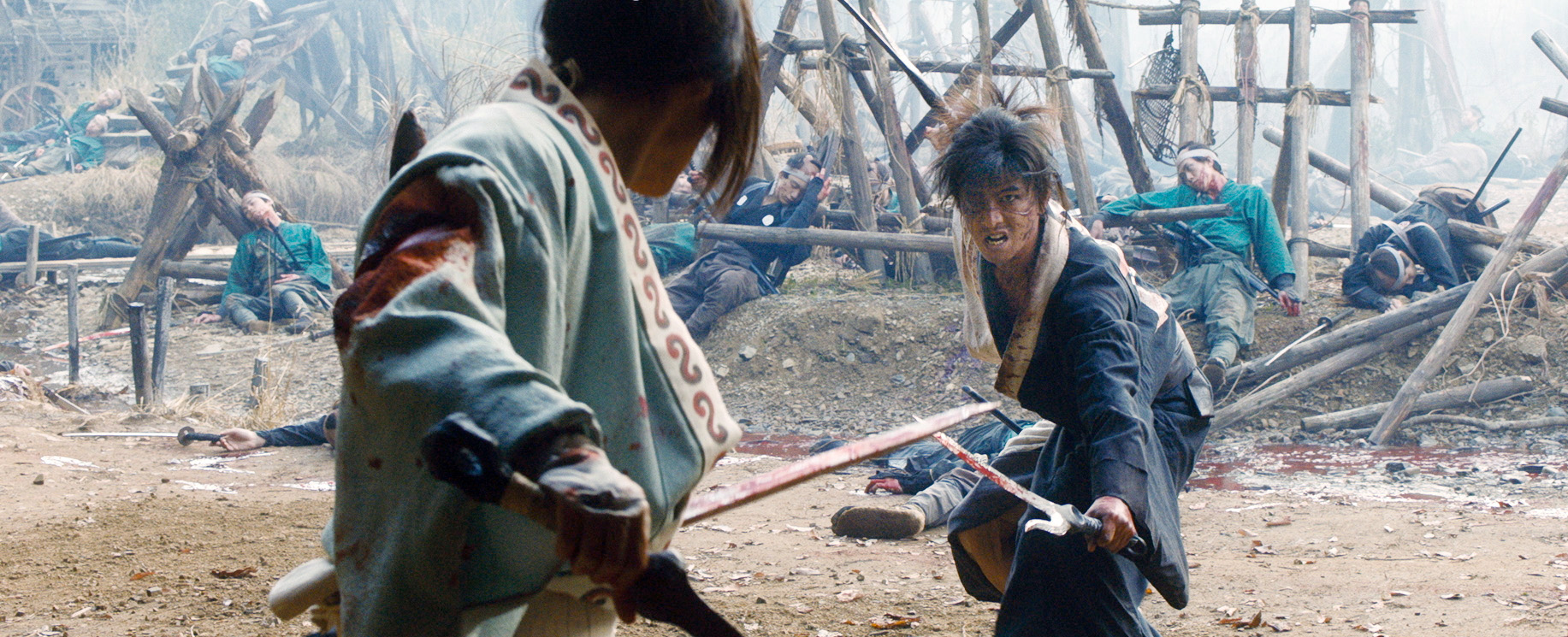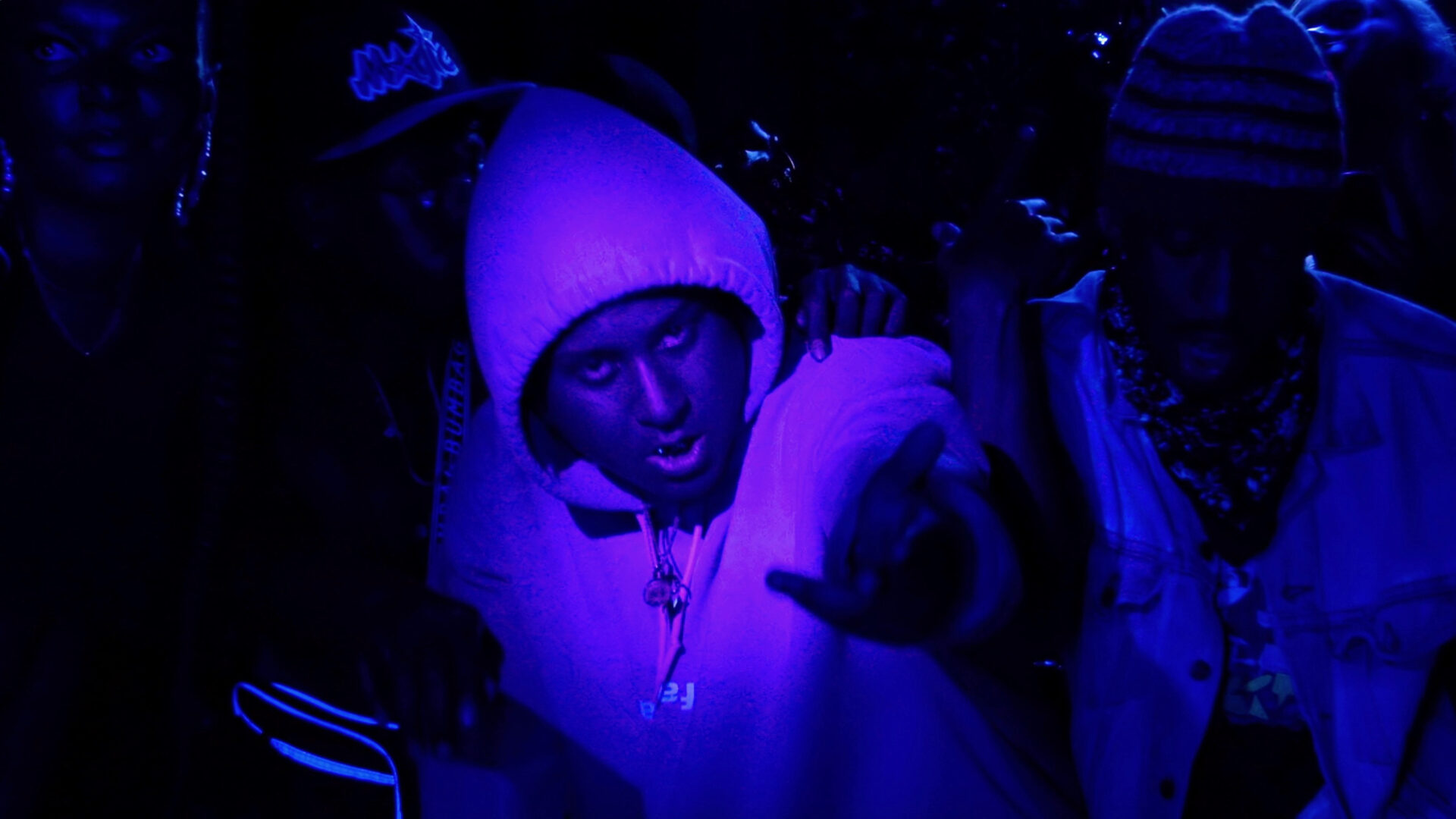I’m forever fascinated by Takashi Miike’s output as a director. The man may be 57 but he’s already on his 100th feature film, which is nothing to scoff at. His feverish interest in exploring all different dramatic forms comes through in his work. Take 13 Assassins, for instance. On paper, the concept comes off as Kurosawa-lite. Under Miike’s hand, though, he adds another layer to the “death and honor by the sword” theme. Instead of diving into the boilerplate dramatics of samurai coming together to protect a town from an evil shogun, the prolific Japanese director turns the violence up to eleven. It doesn’t cheapen the effect, though. The dramatics are given new life through heightening the pain and suffering of the assassins and their suicide mission. For the reasons in which 13 Assassins excelled, Blade of the Immortal fails.
Adapted from the manga of the same name by Hiroaki Samura, Blade follows Manji (Takuya Kimura) as he lives out his broken life as an immortal samurai. After his sister, Machi (Hana Sugisaki), is brutally murdered and he takes vengeance, Manji is cursed with a never-ending life. Flash forward a few hundred years later and he’s approached by a young girl who is a spitting image of Machi. This girl, Rin (also Hana Sugisaki), seeks revenge for her mother and father’s death by the hand of the evil Anotsu Kagehisa (Sôta Fukushi). Through Rin, Manji finds purpose once again and even the prospect of bringing his life of suffering to a close.
While not being entirely familiar with the source material that Blade of the Immortal is based upon, I can glean from the story’s many cartoonish flourishes that they serve the same purpose as a lot of Miike’s direction: making convention better by injecting it with the gaudy, just enough to make the viewer not see right through what’s currently happening. It happened in 13 Assassins. For what can be misconstrued as a very simple ending, Miike throws formal trick after formal trick onto the proceedings in the best way possible. It ends up not mattering less where the story goes than the meticulously screwed up way in how it gets there. Blade of the Immortal takes almost the same concept, but falters in how to present the unconventional.
While Miike’s signature morbid humor sneaks its way into some sequences, you can clearly see him struggling how to present something so bare bones. The twists are limp; much of the story is too. If we’re to watch a 141 minute film about redemption and vengeance, then maybe touch upon those things instead of moving slowly from boss battle to boss battle. In Miike fashion, the ending functions as one huge fight sequence. It skimps on the gaudy once again, though. All we see are swaths of nameless baddies getting cut down before Machi and Kagehisa are the only ones left. There’s no formal tricks here, only numbness to each death. Hell, that would’ve been something to explore in this. Pretty much every character that shows up on screen ends up getting eviscerated in one way or another. What is it about the countless baddies getting struck down that pertains to Manji’s weariness and loss of will to survive? These are questions neither asked nor answered for reasons I’m sure are related to the source material.
What we get is Miike’s craftsmanship not being misdirected. The multiple baddies with their inane weapons and style are played off boldfaced. They’re all conduits for some sort of self-reflection on Manji’s part. It all seems so forced, though. The unrelenting violence comes to a halt not to have exposition dumps, but to have thematic dumps.
That isn’t to say that the film’s weaknesses completely outweigh its strengths, though. It still can be an incredibly entertaining ride when it wants to be. Miike’s reputation as a kind of punk and prankster shines through multiple times in this, seemingly fighting to break free of the story to be carried out. The convention to be found in Rin being a composite of Machi’s sister even comes out earnest and not forced, but maybe that’s because of the strength of the performers. There’s no crassness to Machi and Rin’s relationship, which I find to be interesting. Miike takes deep care to make sure we believe in these two as more than just a simple agreement driven by revenge. These are two broken people slowly being repaired and broken apart again by doling out vengeance.
Blade of the Immortal may not shine as Takashi Miike’s best work, but it once again proves that he’s one of the best working in the business. His self-reflexivity is shown by very few filmmakers, and even if he’s forcing himself to break apart from his most well-known tendencies, he somehow still finds new ways to entertain.













